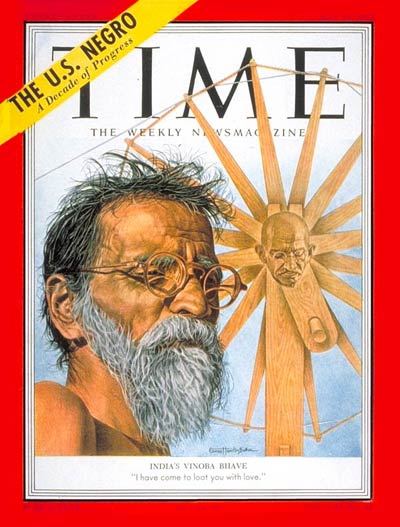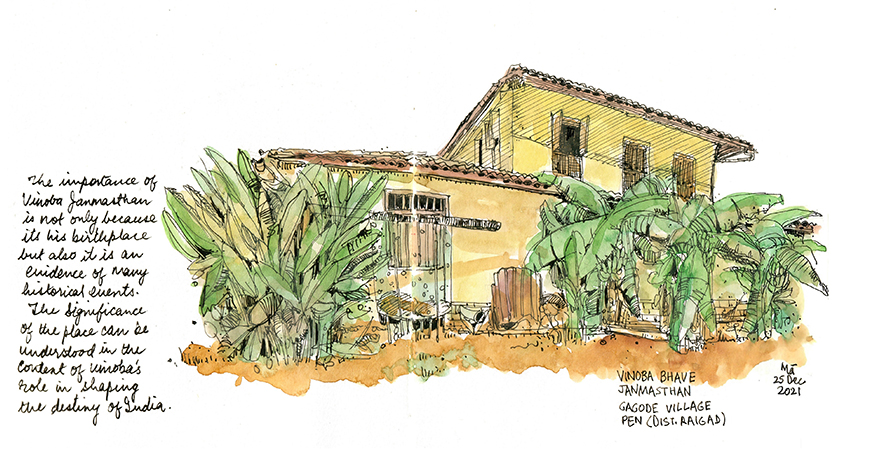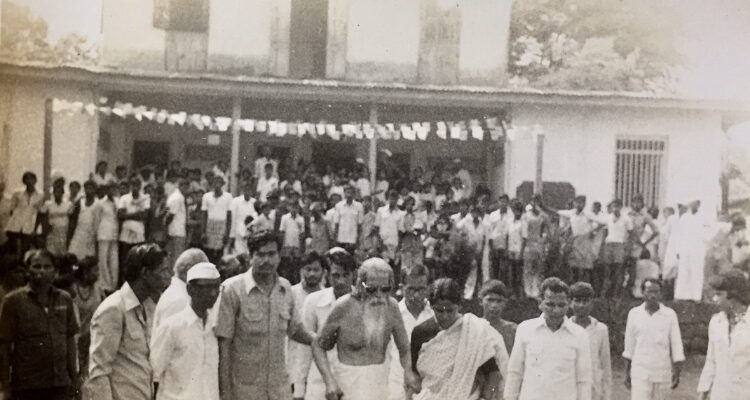History
The importance of Vinoba Janmasthan is not only because it is his birthplace but also it is an evidence of many other historic events. Narsing Krushnarav Bhave, Vinoba’s great great grandfather was a Sardar of Peshava. As a token of appreciation for his valour, Angre Sardar of Alibaug had gifted Gagode village to him in 1807.
In 1908 Vinoba’s uncle, Gopalrao Bhave was suspected to be involved in murdering a British officer Jackson along with revolutionary Kanhere and a gun he owned was taken away from him. When in 1918, Lokmanya Tilak visited Gagode village, the same uncle had donated Rs. 100 to his Swaraj fund.
Vinoba’s early childhood till the age of 10 happened in this house. He learnt spiritual teachings from his grandfather and mother and scientific attitude from his father. Later the family moved to Baroda as his father had taken up a job at the palace of Maharaja Sayajirao Gaikwad.
Considering the importance of this place Vinoba’s disciples started an Ashram and initiated various activities based on his teachings and philosophy.
The historical significance of the Vinoba Bhave Janmasthan can be understood in the context of Vinoba’s role in shaping the destiny of India.
Important visitors to the Janmasthan include:
- Justice Satyaranjan Dharmadhikari
- Dr Abhay Bang
- Dr Anil Kakodkar
- Medha Patkar
- Anna Hajare
- Nikhil Wagle
- Baba Adhav
- Artist Suhas Bahulkar
- Mukta Vaishampayan
- Kalinditai



